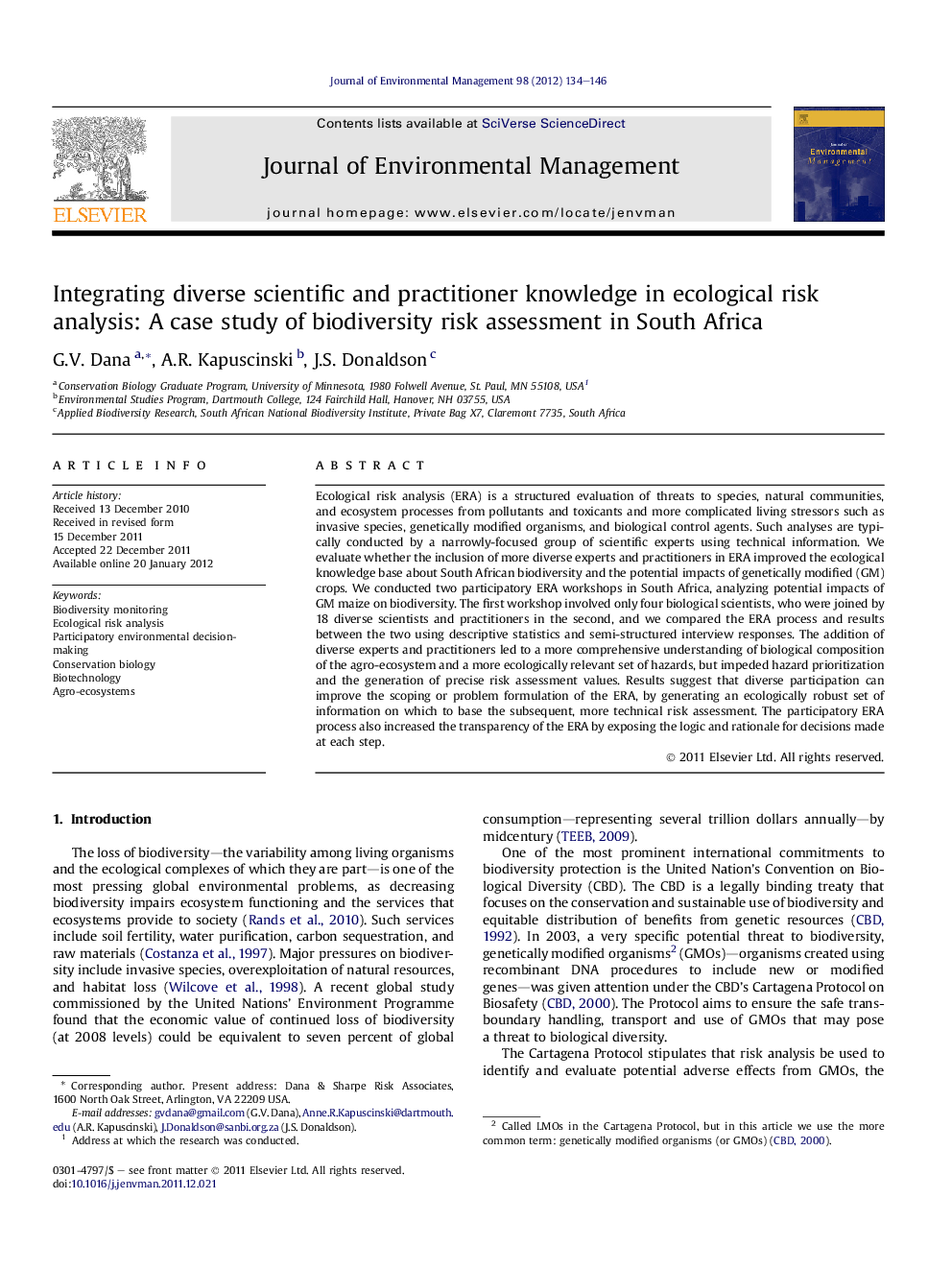| Article ID | Journal | Published Year | Pages | File Type |
|---|---|---|---|---|
| 1056949 | Journal of Environmental Management | 2012 | 13 Pages |
Ecological risk analysis (ERA) is a structured evaluation of threats to species, natural communities, and ecosystem processes from pollutants and toxicants and more complicated living stressors such as invasive species, genetically modified organisms, and biological control agents. Such analyses are typically conducted by a narrowly-focused group of scientific experts using technical information. We evaluate whether the inclusion of more diverse experts and practitioners in ERA improved the ecological knowledge base about South African biodiversity and the potential impacts of genetically modified (GM) crops. We conducted two participatory ERA workshops in South Africa, analyzing potential impacts of GM maize on biodiversity. The first workshop involved only four biological scientists, who were joined by 18 diverse scientists and practitioners in the second, and we compared the ERA process and results between the two using descriptive statistics and semi-structured interview responses. The addition of diverse experts and practitioners led to a more comprehensive understanding of biological composition of the agro-ecosystem and a more ecologically relevant set of hazards, but impeded hazard prioritization and the generation of precise risk assessment values. Results suggest that diverse participation can improve the scoping or problem formulation of the ERA, by generating an ecologically robust set of information on which to base the subsequent, more technical risk assessment. The participatory ERA process also increased the transparency of the ERA by exposing the logic and rationale for decisions made at each step.
► Test value of including diverse experts and practitioners in ecological risk analysis. ► Diverse participation improves understanding of complex socio-ecological systems. ► Diverse participation identifies greater number of ecologically relevant hazards. ► Diversity improves comprehensiveness of biodiversity assessments of novel stressors.
